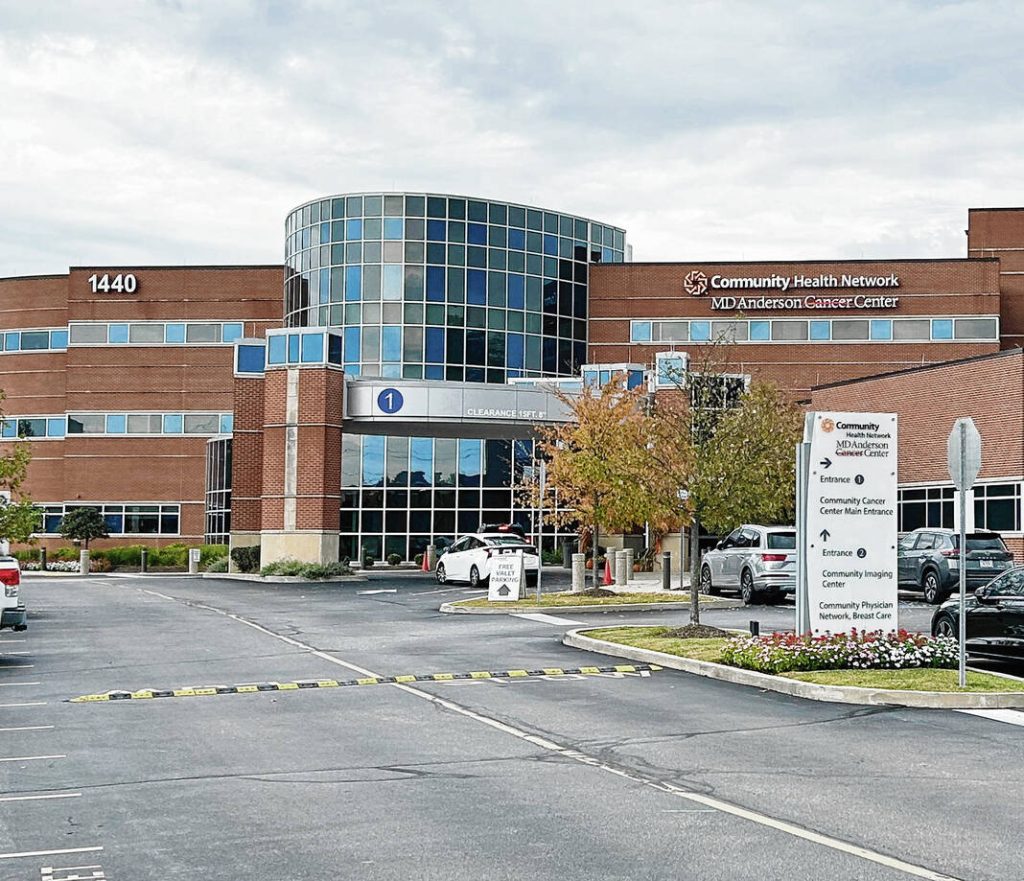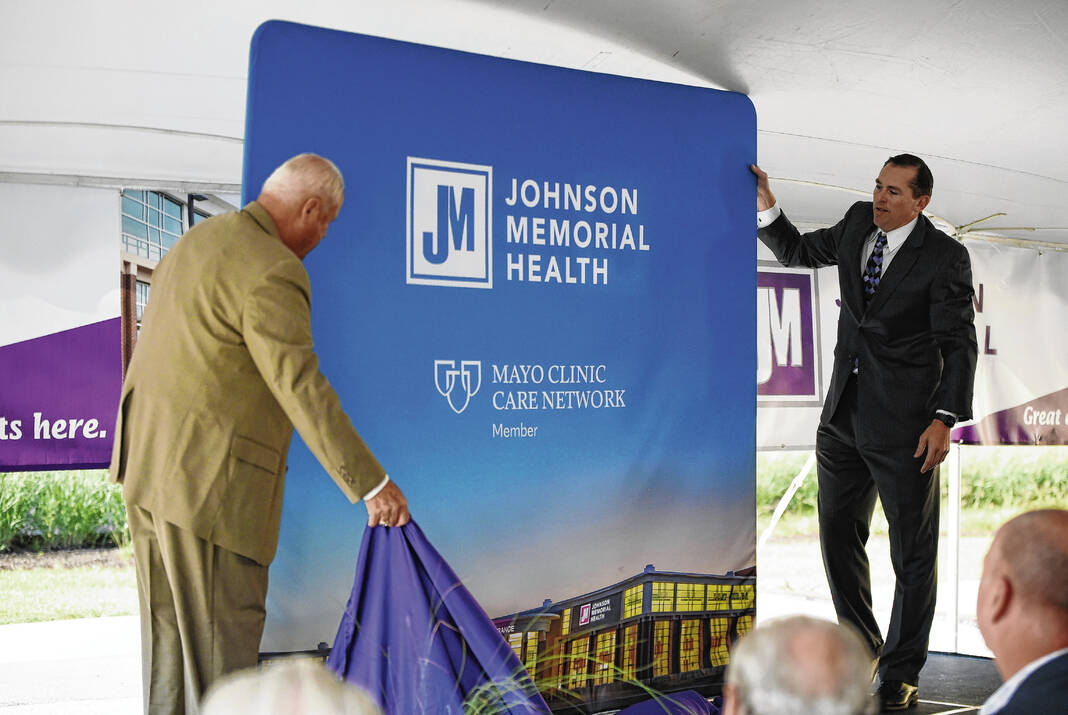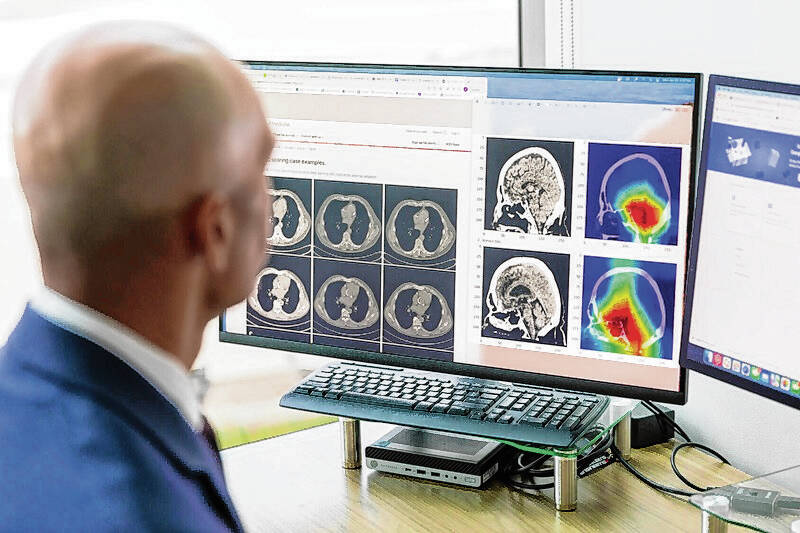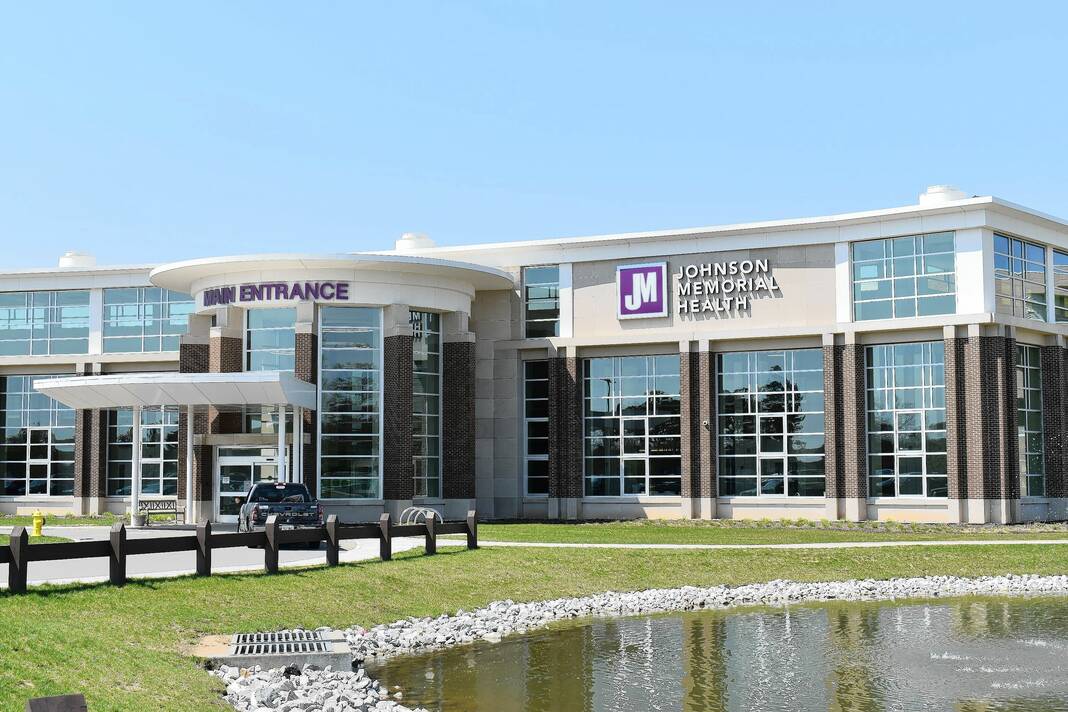Efforts to bring higher quality care to Johnson County residents have led to local health systems teaming up with national organizations to improve care.
So far, health officials say these partnerships have been successful and beneficial to patients.
For approximately two years, Johnson Memorial Health and Community Health Network have been utilizing the expertise of the Mayo Clinic and the University of Texas MD Anderson Cancer Center, respectively, for patient care. Hospital officials say the collaborations give patients and staff access to knowledge and skills from nationally recognized organizations.
“The Mayo Clinic is kind of the premier health care institution … it’s kind of a ‘no brainer’ for me. I can’t speak of another facility that would trump the Mayo Clinic’s name,” said Dr. Stephen Eberwine, an oncologist and medical director of the Johnson Memorial Health Cancer Care Center. “So being able to offer the Mayo Clinic as an option for my patients and compliment the care that they’re receiving here at JMH is really, it’s a win-win for both the patient and for the institution here.”
Through a similar collaboration, Community Health can give patients an experience very similar to what they would have at MD Anderson, said Dr. Anuj Agarwala, Community Health’s medical director of oncology.
“We believe that we’ve been providing good care for a long time, but we knew that there was something more that needed to be done to provide our patients access to world-renowned care,” Agarwala said. “And so when this partnership idea became an opportunity, we were all for it. If we can help people that would not otherwise have access to world-renowned care and those experts, if we had the abilities to deliver that care here close to home and the surrounding region, we wanted to do that.”
Johnson Memorial
Johnson Memorial has been involved in a network with the Mayo Clinic for about two years, giving local physicians access to national expertise. The network helps distinguish JMH from local competitors and provide high-quality care to patients, Eberwine said.
This collaboration is part of the Mayo Clinic Care Network, which was created in 2011 to make clinical connections between the clinic and other regional health institutions around the world.
The idea was to take care of patients wherever they may be, said Dr. Mark Larson, a consultant in gastroenterology, associate professor of medicine and medical director of the Mayo Clinic Care Network.
“The patient doesn’t have to travel to downtown Indianapolis or somewhere else to see a specialist who might be an expert in that area, and the patient doesn’t have to pay anything,” Larson said. “It’s an investment by the local institution, in this case, Johnson Memorial Hospital, in caring for their patients by collaborating with a very large academic medical center like the Mayo Clinic.”
Right now, there are approximately 35 domestic and 11 international members in the network.
Within the collaboration, JMH staff has access to asynchronous e-consultations where they can ask Mayo Clinic specialists opinions on a patient’s care, specialized cancer e-boards with a Mayo Clinic interdisciplinary board of specialists that discuss tough cases presented by JMH or other health organizations and a tool that offers information on hundreds of medical conditions. Care network resources are available to all specialists and providers at JMH.
Eberwine said the network is “fantastic” because it gives patients access to second opinions free of charge. Additionally, with medical diagnoses “as sensitive as cancer,” doctors and patients want information as quickly as possible to make decisions about treatment plans, he said.
There have been several positive outcomes from the collaboration so far. For example, Eberwine said a patient who had been to a few different hospitals was recommended to receive chemotherapy, but after the Mayo Clinic reviewed the case, the diagnosis was changed, helping that patient avoid it.
Other times, Eberwine said Mayo Clinic has been able to review pathology and give a patient a more detailed and accurate diagnosis that could clarify a diagnosis that was in doubt or raised questions on how to best treat that patient.
He said not every oncologist is an expert in every area, so having “a worldwide leader in cancer care” allows JMH access to experts in areas like lung cancer, breast cancer or rare cancers.
“Just knowing that I have that behind me gives me the confidence to sort of be able to walk into an exam room [and] be able to offer patients that they’re getting a level of experience that they wouldn’t have gotten without this partnership,” he said.
Community Health
Community Health Network participates in a collaboration too as they are one of seven other health care organizations partnering with the University of Texas MD Anderson Cancer Center. Community Health has been an affiliate with MD Anderson since 2012 and more recently became a partner with fuller integration in 2022.
The partnership allows MD Anderson to support the development of cancer care across the country with health care organizations who are interested and ready to invest in their cancer programs, improve the quality of care and engage with MD Anderson to provide “some of the newest and most promising” treatments, said Dr. Jeff Lee, chief medical executive ad interim and chief cancer network officer at MD Anderson.
Improving the care of patients is central to MD Anderson’s mission — in Texas and beyond, Lee said.
“We recognize that outstanding care is usually local care and that while there are a few patients who have the ability to come to Houston for care, there are many more patients who can’t or shouldn’t, who are better treated in their local communities,” Lee said.

Community’s partnership with MD Anderson is exclusive to cancer but provides services for all areas that feed into cancer, including pulmonary doctors, lung doctors and gastrointestinal doctors who are MD Anderson certified, Agarwala said.
Resources in the program include direct access to call MD Anderson physicians and discuss cases with them and the ability to send patients to MD Anderson quickly. Community Health also has meetings with MD Anderson staff and other partner sites around the country of different sub-specialties throughout the year to talk about cases, strengths and weaknesses and where improvements can be made.
Through these partnerships, Lee said local health care organizations benefit beyond the cancer program itself through the “collaborative and coordinated care” approach that extends to other parts of the organization. Community Health staff also benefit from the active connection and expertise, education, care plans and approaches from MD Anderson.
There are also opportunities for access to MD Anderson trials through the partnership, Lee said.
MD Anderson can almost double the number of patients that they can support the care of and patients also have the opportunity for access to new treatments through a National Clinical Trials Network. The results of the clinical trials will have more “true” answers quicker because of the diversity of patient populations MD Anderson can treat, Lee said.
The protocols Community Health follows are in line with MD Anderson’s practices and some physicians at MD Anderson participate on some of the tumor boards at Community Health every week. The goal is to eventually fully integrate MD Anderson’s research protocols into Community Health, Agarwala said.
Partnerships will continue
There are advantages to health care partnerships between local and national health care organizations, Lee said. He feels the model between MD Anderson and Community Health is unique in that it’s not a takeover or merger but “a true partnership,” he said.
While there are other medical organizations that are developing partnerships, Agarwala couldn’t say what those relationships are and if they are “truly as integrated” as Community Health’s partnership with MD Anderson.
“It took multiple years for us to get to this level. As opposed to just saying, ‘Let’s partner up,’ we really had to and have to continue to meet a certain level of standards in order to maintain the relationship,” he said.
Eberwine believes partnerships like the one JMH has with the Mayo Clinic will continue as time goes on, and other organizations may do something similar because a team approach makes more sense, he said.
Larson agreed, saying it is “definitely a trend” because new information in health care “is exploding” and no physician can keep up with everything. Health care organizations need specialists to provide the best care because of this, he said.







